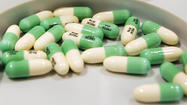NEW YORK (Reuters Health) – Although studies of the effects of relaxation techniques on menopause symptoms have yielded mixed results so far, a new report from Sweden comes down in favor of the approach as an alternative to hormone therapy.
Postmenopausal women trained to relax before and during the onset of hot flashes cut the frequency of those events in half during the three-month trial, researchers say. Women in a comparison group that got no treatments experienced little change in their symptoms.
“The results tell you that, yes, this seems to work,” said Kim Innes of West Virginia University, who has studied mind-body therapies for menopause symptoms but was not involved in the new study. “This was a moderate-sized trial that yielded promising – although not definitive – findings regarding the efficacy of applied relaxation,” she told Reuters Health.
In a review of more than a dozen previous clinical trials involving mediation, yoga and Tai Chi therapies, Innes concluded that these techniques may hold promise for relieving menopause symptoms, but it’s too soon to tell. Read full article.

